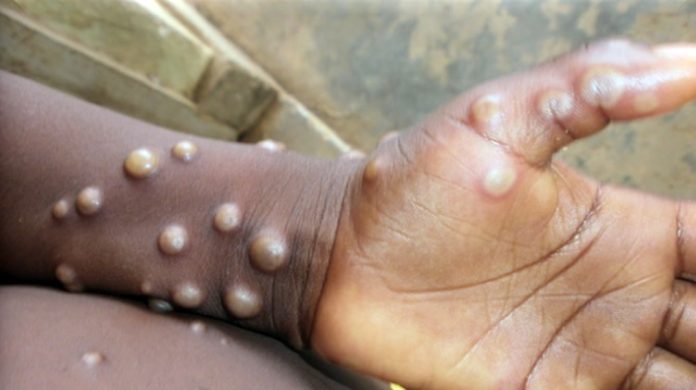Monkeypox (Mpox) has been a persistent health concern across West, Central, and East Africa for decades, with the first human case reported in 1970. Two distinct types of Mpox virus have been identified: Clade I and Clade II. Clade I, endemic to Central Africa, is associated with severe illness, while Clade II, primarily found in West Africa, generally causes milder symptoms. The global Mpox outbreak in 2022 was caused by a subtype Clade IIb. Vulnerable populations, including individuals with compromised immune systems, children, and pregnant women, are at a high risk of developing severe Mpox.
The alarming spread of Clade Ib in the Democratic Republic of the Congo (DRC) and other African nations prompted the World Health Organization (WHO) to declare a public health emergency of international concern on August 14, 2024. As of August 9, 2024, data from the Africa Centres for Disease Control and Prevention (CDC) reveals that 13 African countries have reported a total of 17,541 Mpox cases and 517 deaths this year, with the DRC alone accounting for 16,789 cases and 511 deaths. Currently, the Clade Ib variant is spreading across Africa and is considered more lethal than Clade II.
In response to these developments, the Ghana Health Service (GHS) activated its emergency response plan shortly after the WHO issued its alert. This proactive measure aligns with global efforts to combat the spread of Mpox. On October 3, 2024, GHS confirmed a case of Mpox in the Bia West District of the Western North Region involving a 15-year-old boy who presented with symptoms including fever, body aches, sore throat, and rashes on his palms and face. In a public health advisory, GHS reported that 230 suspected Mpox cases have been identified across 88 districts nationwide.
Given these recent developments and the absence of specific antiviral treatments for this aggressive viral infection in Ghana, the GHS emergency response plan aimed at preventing further spread of Mpox.
Tecovirimat, an antiviral drug, was first identified by high-throughput phenotypic screening against vaccinia virus and later found to exhibit broad-spectrum antiviral activity against other orthopoxviruses (OPV), including smallpox, cowpox, monkeypox, ectromelia, and camelpox viruses with EC50 values in the submicromolar range.
Tecovirimat has been approved by the European Medicine Agency (EMA), U.S. Food and Drug Administration (FDA), and Health Canada for the treatment of various OPV infections, and for Mpox under an expanded access investigational new drug protocol managedby the U.S. Centers for Disease Control and Prevention. It works by blocking the release of virus particles from infected cells, inhibiting the protein p37 present in orthopoxviruses, which significantly reduces virulence.
Following animal studies demonstrating its efficacy, Tecovirimat underwent safety evaluations in randomized controlled trials, showing positive results with mild, placebo-like side effects such as headache and abdominal pain from oral use, and infusion site reactions from intravenous use. Emerging evidence indicates that the drug is effective against Mpox, particularly the Clade II variant.
A UK study reported that a patient treated with Tecovirimat had a shorter disease duration, reported no adverse effects, and was discharged faster than six untreated patients. The drug is authorized for emergency use in severe Mpox cases, even for immunocompromised individuals.
Tecovirimat is currently supplied primarily to the United States, selected European countries, and economically stable nations by SIGA Technologies. Its limited availability is due to high production costs and challenges in its synthetic manufacturing process, as outlined in U.S. patent 2008/0004452. This process faces issues such as diastereoselectivity (endo vs. exo), low yields, and difficulties in sourcing the essential starting material cycloheptatriene. Many middle-to-low-income countries in Africa lack the infrastructure to support advanced biopharmaceutical laboratories required for further developing a cost-effective method, limiting access to this life-saving treatment for vulnerable populations.
To address these challenges, Vigonvita Life Sciences and Shanghai Institute of Materia Medica, Chinese Academy of Sciences in Chinahave developed a sustainable and cost-effective synthesis method for Tecovirimat(published in Organic Process Research & Development journal: doi.org/10.1021/acs.oprd.3c00151).
The innovative four-step process optimizes reactive distillation conditions to safely produce cycloheptatriene, the starting material for Tecovirimat, balancing safety, yield maximization, and sustainability. This development aims to make the drug more accessible to middle and low-income countries.
This process has been successfully used to produce the drug substance with yields four times greater than those achieved by the original inventor’s method. Notably, three 60 kg batches have been produced for clinical investigations, and the DMF for the API have been submitted to NMPA (National Medical Products Administration, China) and FDA respectively.
Researchers at Vigonvita Life Sciences in China have made Tecovirimat capsules available in generic form for clinical investigations, recognizing the diverse clinical manifestations of Mpox across different populations. This accessibility is crucial for middle and low-income countries in Africa, supporting ongoing clinical trials like the STOMP trial.
Such initiatives will enhance Ghana’s response to current outbreaks by improving surveillance, increasing laboratory testing, acquiring and distributing oral doses, and negotiating additional supplies. These efforts are vital for establishing a standard of care to reduce Mpox mortality.
By Dr Emmanuel Mintah Bonku
(The writer is Researcher in the field of Medicinal Chemistry & Drug Development)
Email:emmanuel.bonku@mails.ucas.ac.cn
The views expressed in this article are the author’s own and do not necessarily reflect The Chronicle’s stance.








